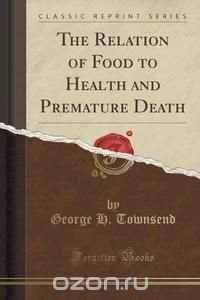Excerpt from The Relation of Food to Health and Premature Death
This is an age of wonderful strides in production, but we fear that man, in improving everything else, has, in a great measure lost sight of himself. To the scientist who understands something of the wonderful development of nature, when free from hindrance, there is nothing so utterly astonishing as the weakness and folly of the human race. Believing that ignorance of self is the mother of our devouring evils - disease, vice and crime - the author, with the assistance of his collaborators, has undertaken to blaze out a road to a better and higher life, and however painstaking the effort, it would be too much to expect that our labors would produce results that approached the ideal. It is hoped, however, that this book will be of service in pointing out the devious windings into which appetite and surrounding influences often allure the thoughtless - resulting in their discomfiture and premature death.
Physical, mental and moral perfection can only exist when our lives come into harmony with natural laws, and when we cease to antagonize nature, the work will be done.
If we have made plain the most common transgressions of nature and how to minimize their effects, our purpose will have been accomplished.
About the Publisher
Forgotten Books publishes hundreds of thousands of rare and classic books. Find more at www.forgottenbooks.com
This book is a reproduction of an important historical work. Forgotten Books uses state-of-the-art technology to digitally reconstruct the work, preserving the original format whilst repairing imperfections present in the aged copy. In rare cases, an imperfection in the original, such as a blemish or missing page, may be replicated in our edition. We do, however, repair the vast majority of imperfections successfully; any imperfections that remain are intentionally left to preserve the state of such historical works. Это и многое другое вы найдете в книге The Relation of Food to Health and Premature Death (Classic Reprint) (George H. Townsend)
